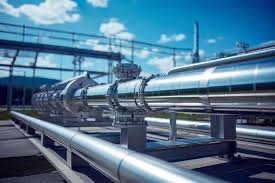South Africa’s PetroSA officials anticipate the arrival of the first gas shipments from Mozambique’s national energy company, ENH, later this year. This is part of proactive measures to bolster energy reserves and mitigate the risk of potential shortages.
Handed a gas trading license by regulators in March, state-owned oil and gas company PetroSA has moved quickly to secure a deal for an initial 2 petajoules of gas a year (PJ/a), with scope to rise to 200 petajoules eventually.
That would be enough to supply scores of industrial gas users, including steelmaker ArcelorMittal, which currently relies on around 190 PJ/a, mainly supplied by South African petrochemical firm Sasol.
Sasol has warned customers that it will significantly restrict supplies in a couple of years as its Mozambican gas fields run dry.
PetroSA wants to form a joint venture (JV) with ENH to woo potential gas clients in energy-starved South Africa and intends to replicate the JV model at Mossel Bay to trade gas from offshore fields discovered by TotalEnergies to the Cape market.
“At Mossel Bay, we will be looking at potentially two different JVs, one with Total for Brulpadda (field) and then another JV for the Block 9 development, but the main entity that will trade gas for the group is PetroSA Gas Trading,” Sesakho Magadla, chief operating officer at PetroSA, told Reuters.
The ENH gas sales agreement involves importing gas via the 869-kilometer ROMPCO pipeline that links Pande and Temane fields to South Africa before supplying users via Sasol’s pipeline network in the north of the country, she said. ENH did not respond to requests for comment.
PetroSA is currently negotiating two gas transportation agreements with Sasol and ROMPCO, the pipeline company it operates, as a presentation to lawmakers last month showed.
The ROMPCO pipeline flows from Mozambique to Sasol’s petrochemical complex at Secunda, where it operates the world’s largest coal-to-liquids plant.
“Negotiations are currently ongoing relating to a gas transportation agreement to provide PetroSA… access to uncommitted capacity within the pipeline network,” Alex Anderson, Sasol spokesperson, said.
He also stated that technical studies are currently in progress to assess the viability of transporting PetroSA’s gas to various locations near the existing pipeline network.

